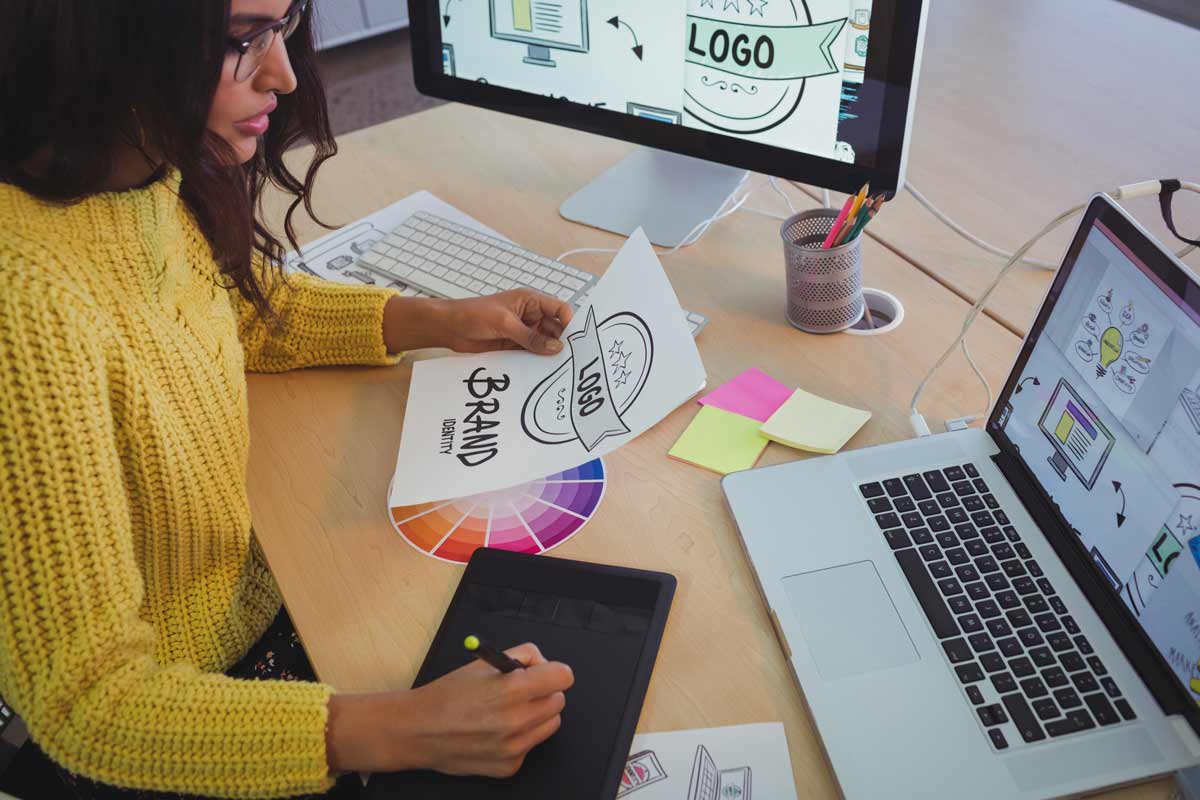Countless people have built their careers freelancing, and among the more popular professions are designers. People who haven’t been freelancing for too long may struggle to get new clients, which can be a problem. Running a successful career means you’ll need to attract and retain clients, which is where this guide comes into play.
Build a Portfolio
No matter what profession we’re talking about, having a resume is crucial to landing a job. With freelance design, building a portfolio is essential because it will allow you to showcase your work to people hoping to become clients.
Let’s say you’re starting out and don’t have any past work to showcase, but you want to build a portfolio. It’s not a massive problem because there are other ways to do so. As a designer, you probably have certain ideas that you can turn into projects. These not only help you practice your creativity, but they can also help you build your portfolio.
Some volunteering work can also go a long way. Creating designs for local charities is an excellent way to gain exposure. You probably won’t get paid, but you can look at it as a long-term investment. If the design is good, you can showcase it on your resume, which can help you land your next project.
Use Mockups
Applying for a designer position means that you’ve already gone through the job description and have an idea of what the client is looking for. Armed with the knowledge and your portfolio, you can create a mockup design, which can be very useful.
Whenever companies look for designers, they usually want someone who can show they’re good at their job. It’s not about the design; it’s about turning an idea into a design, and the mockup will help. You’re showing the potential client that you understand the requirements and are ready to commit to the task at hand.
Communication is Key
As a designer, you may have an eye on a project or a position and have applied for it, but your work doesn’t stop there. If you get a potential client interested, they may reach out. This is where communication can be crucial.
Open communication, which is one where you show initiative, can help you land your next client. Be realistic, and if there’s a requirement that’s not doable by you or in general, be open about it. Explaining why something cannot be done may lead to additional discussion where the client will consult you, leading to a contract.
Networking
Like with most job positions, networking is a great way to meet new people, discuss new ideas, and, most importantly —find a new client. Being in touch with fellow designers will help you build a relationship that you can benefit from.
There are countless communities where other designers will post interesting job postings or potential clients. Getting access to certain communities can also help, especially if you show that you’re good at what you do. There are endless possibilities, and it’s up to you to explore as many as you can to attract new clients.
Protect Your Work
Security is often overlooked in this niche, yet it’s one of the most crucial aspects of being a successful freelance designer who protects both their own and their clients’ online security.
As a freelance designer, working remotely from a far destination has its own appeal. Whether from a cafe or library, you’ll need to connect to public Wi-Fi in order to get started with your work. The risk of having your data intercepted or relying on an unsecured connection isn’t ideal. This is why eSIMs are a good option: You’ll be using a stable and secure connection that you can set up in a few minutes. Plus, with eSIMs, you don’t have to worry about costly roaming charges.
Finding the right provider, however, can be a challenge. To simplify the process, consider reading customer reviews or exploring Reddit’s eSIM comparison table to identify the best options for your needs.
You can also create your own checklist of features and requirements for an eSIM. This might include affordable data plans, sufficient data limits, and broad coverage. Then, review trustworthy providers and compare their offerings one by one.
It’s important to note that the location you’re buying the eSIM for matters significantly. For instance, an eSIM Europe plan won’t work for Asia, Africa, or other regions. Keeping this in mind will help you secure a reliable internet connection without risking your or your clients’ data.
Conclusion
A successful designer didn’t start that way. Each one had to climb a ladder to reach where it is, meaning that at a certain point, there was a problem of getting new clients. If you’re in this position, today’s tips will help you land your next project. As a bonus, there are a few tips to remain protected when working.

